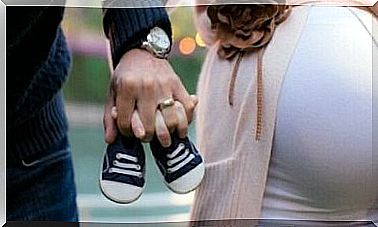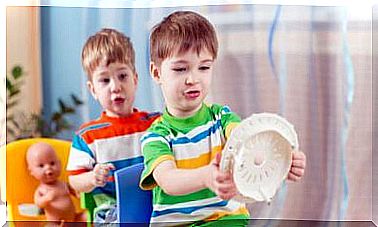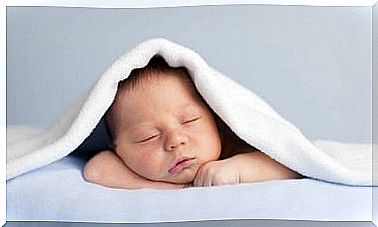Why Do Babies Lose Weight At Birth? – Being Parents
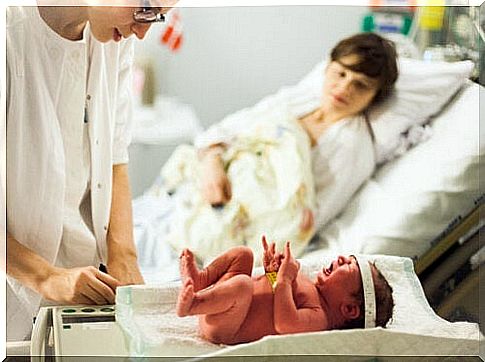
It is a well-known fact that a baby’s birth weight can drop dramatically in the first few days of life. This is because it may take around two weeks for this value to fully recover and the process of real growth to begin. Why do babies lose weight at birth?
This phenomenon may seem somewhat contradictory. And while some diseases can stunt growth, in the vast majority of cases, it is natural. Find out why this is happening and how it can affect your child.
Do all babies lose weight after they are born?
In general, weight loss in the first few days of life is almost a constant in the babies examined. The weight ratio can vary depending on various personal and environmental factors. For example, a study published in the Chilean Journal of Pediatrics in 2018 found that after 48 hours of assessment, there was an average loss of 6.85%.
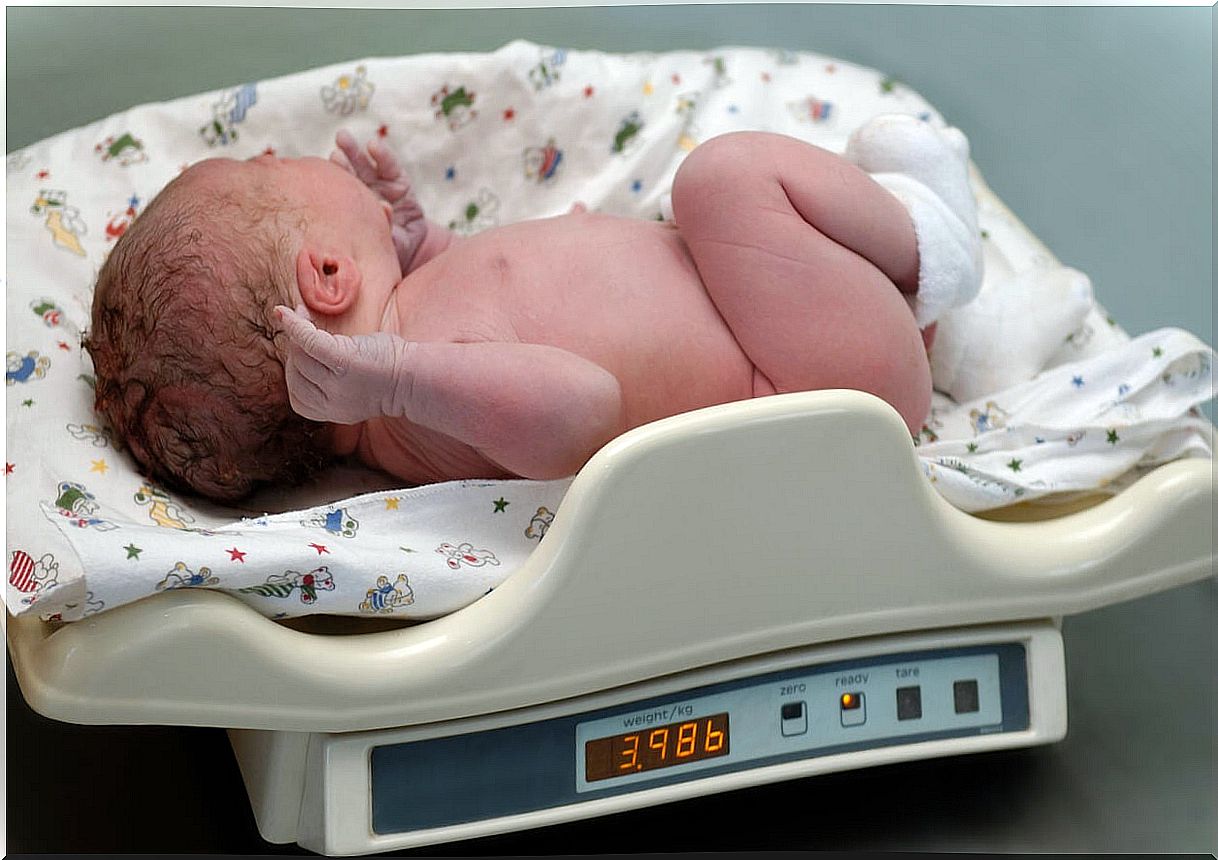
These values can change and the most normal is that this situation does not last more than a few days or, at most, two weeks. While there is no set range for considering an exact weight loss value to be dangerous, it shouldn’t exceed 10% of your birth weight.
Reasons why babies lose weight at birth
The transition from the uterus to the outside environment may seem easy, but it really isn’t. The baby has to get used to sudden changes in temperature. His cardiorespiratory system changes almost completely (including some small anatomical changes) and contact with other living things and food sources has its consequences.
Regarding the topic that brings us today, the fact that babies lose weight at birth is something natural that can be explained by many of the factors mentioned above. The redistribution of fluids in the body plays a fundamental role. This is what we will talk about next.
Urinary system
When the kidneys and the rest of the urinary tract start to function outside the uterus, babies inevitably lose weight due to changes in the distribution of fluids in the body. The baby was used to ingesting amniotic fluid during development. This change also affects the pattern in which spontaneous urination occurs.
In fact, the adaptation that occurs after birth involves a significant change in the distribution of body water that can affect weight. The little ones experience a close connection between water and their body mass. While adults gradually lose this relationship.
Digestive system
It goes hand in hand with diet. Indeed, the exposure of the digestive tract to different substances – which in the first days of life should only come from breast milk – and subsequent defecation are phenomena that can also promote weight loss.
The Meconium is the first feces produced by a baby and has a very characteristic dark color and a smell rather unpleasant. Did you know that the difficulty in expelling meconium is linked to diseases like cystic fibrosis? Fascinating, isn’t it?
Diet, one of the reasons babies lose weight
Breast milk provides all the nutrients a newborn baby needs to grow properly. Including the development of his immune system.
However, in the first days of life, the amount of milk produced by the mother may be slightly less than what she will produce later. Despite this, there are several ways to increase your production.
Colostrum is the first type of breast milk emitted by the mother and has some differences in its composition with well-developed milk. Over time, the quantity and quality of this substance will promote adequate weight gain in the infant.
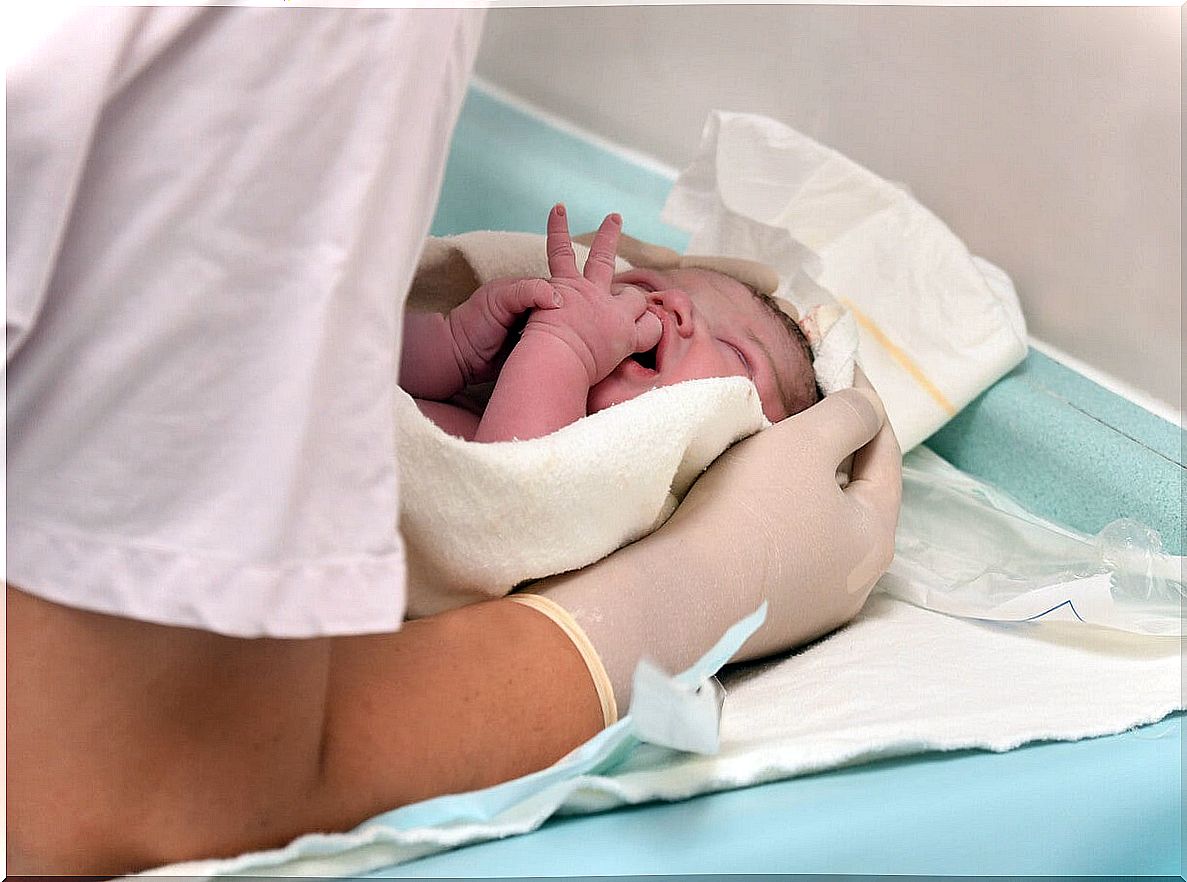
What to do in this case?
As you have seen, this weight loss is a natural phenomenon which should not alarm you. It is important to remain vigilant during the first days of life. Especially with regard to the appearance of other symptoms. For example, if your baby is having difficulty sucking milk or having a bowel movement, there is probably another health problem associated with it.
It is not advisable to weigh the baby at all times, as this may increase your distress. Just observe his physical appearance, in addition to his demeanor. If you have the ability to weigh it, it can be helpful to do this every 3-4 days.
If the baby has too much and prolonged loss (close to the 10% we talked about at the beginning), it is advisable to go to the pediatrician as soon as possible.
Stay tuned, but calmly!
Indeed, weight loss can sometimes be worrying. The main thing, however, is to stay calm. Because in the vast majority of cases, this is quite normal. If you detect an abnormality and think it is better to seek advice, consult your trusted doctor.
